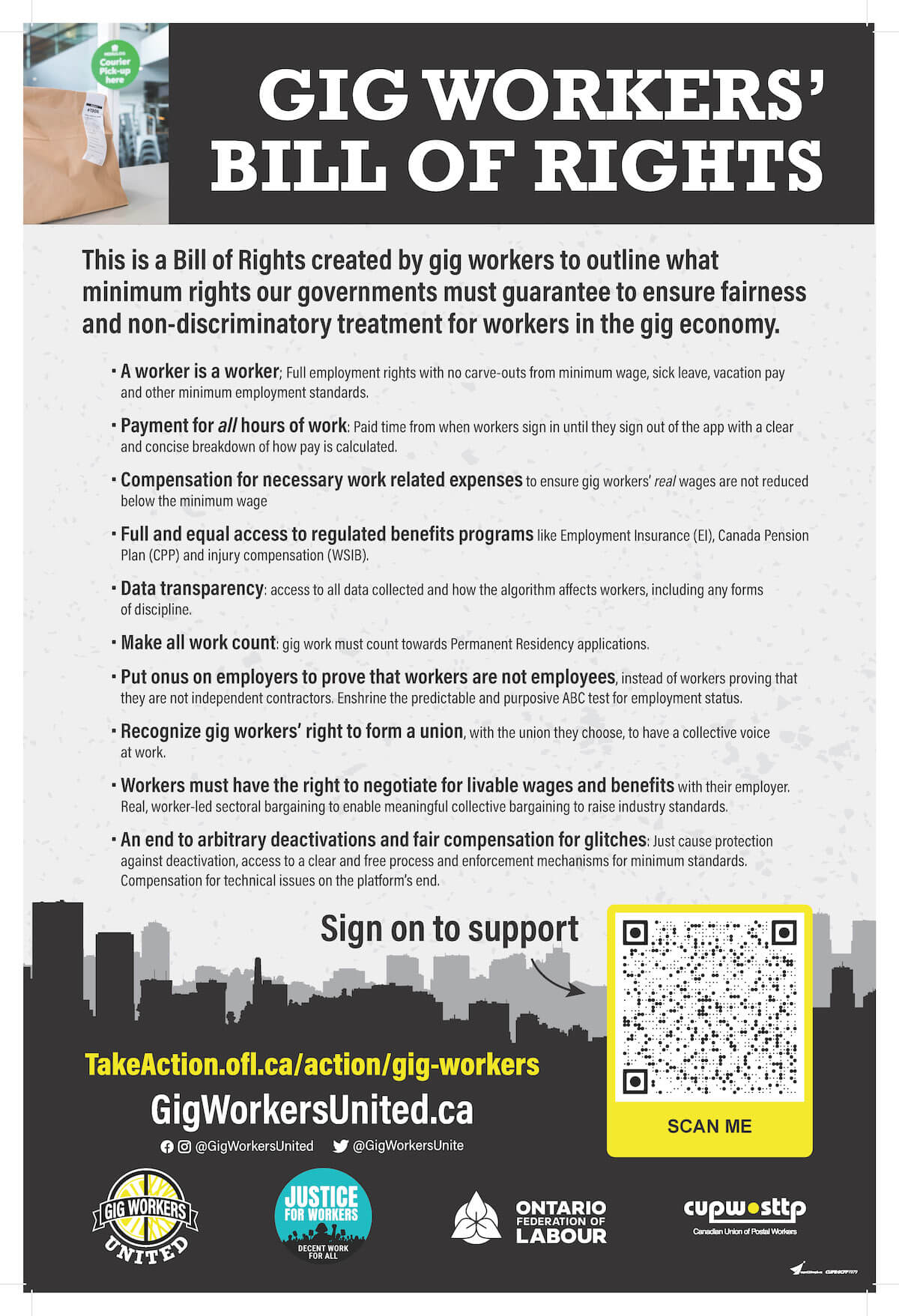The Struggle for Gig Worker Rights in the USA: A Fight for Fairness and Protection
This exciting moment allows us to explore new dimensions of the interesting discussion of The Struggle for Gig Worker Rights in the USA: A Fight for Fairness and Protection. Let’s gather meaningful insights and present fresh perspectives for the readers.
Video about The Struggle for Gig Worker Rights in the USA: A Fight for Fairness and Protection
The Struggle for Gig Worker Rights in the USA: A Fight for Fairness and Protection

The rise of the gig economy has transformed the way Americans work. With the proliferation of companies like Uber, Lyft, and DoorDash, millions of workers have turned to freelance and contract work as a primary or secondary source of income. However, this shift has also created new challenges for workers, who often lack the same rights and protections as traditional employees.
In this article, we’ll explore the current state of gig worker rights in the USA, the efforts to improve working conditions, and what the future may hold for these workers.
The Gig Economy: A Growing Phenomenon
The gig economy, also known as the sharing or on-demand economy, refers to the increasing trend of short-term, flexible, and often freelance work arrangements. Instead of working as traditional employees, gig workers engage in contract or freelance work, often through platforms or apps. This shift has created new opportunities for workers to earn money on their own terms, but it has also raised concerns about the lack of protections and benefits.
According to a report by the McKinsey Global Institute, the gig economy has grown significantly in recent years, with an estimated 36% of the US workforce, or 56 million workers, engaging in some form of gig work. This number is expected to continue growing, with estimates suggesting that by 2025, 73% of companies will use gig workers in some capacity.
The Challenges Faced by Gig Workers
Gig workers face a range of challenges, including:
- Lack of job security: Gig workers often lack a guaranteed schedule or income, making it difficult to budget and plan for the future.
- Inconsistent pay: Gig workers may experience variable pay rates, making it challenging to meet their financial obligations.
- No benefits: Gig workers are often ineligible for benefits, such as health insurance, paid time off, and retirement plans.
- Limited access to resources: Gig workers may not have access to resources, such as training and equipment, to help them perform their jobs effectively.
- Unclear employment status: Gig workers often struggle to determine their employment status, leading to confusion about their rights and responsibilities.
The Fight for Gig Worker Rights
In recent years, gig workers have become increasingly vocal about their concerns, leading to a growing movement to address their needs and improve working conditions. Some of the key demands of gig worker rights advocates include:
- Misclassification: Many gig workers argue that they are misclassified as independent contractors, rather than employees, which denies them access to benefits and protections.
- Fair compensation: Gig workers advocate for fair compensation, including a minimum wage, overtime pay, and benefits.
- Paid time off: Gig workers demand paid time off, including sick leave, vacation time, and holidays.
- Job security: Gig workers seek job security, including a guaranteed schedule and protection from unfair termination.
Efforts to Improve Gig Worker Rights
Several efforts have been made to address the concerns of gig workers, including:
- California’s AB5 law: In 2019, California passed a landmark law, AB5, which requires companies to reclassify workers as employees if they meet certain criteria, such as controlling the worker’s schedule and requiring them to wear company uniforms.
- The PRO Act: The Protect the Right to Organize (PRO) Act, introduced in the US House of Representatives in 2020, aims to protect workers’ rights to organize and form unions, including those in the gig economy.
- Gig worker unions: Several gig worker unions have formed in recent years, including the Freelancers Union and the Independent Drivers Guild, which advocate for gig worker rights and provide support and resources.
- Company-led initiatives: Some companies, such as Uber and Lyft, have implemented their own initiatives to improve working conditions, including benefits and training programs.
Closure
We trust this article has clarified.